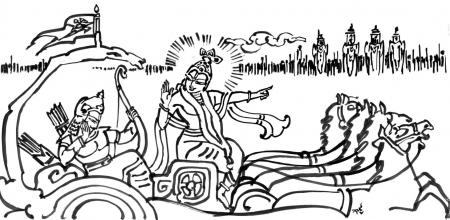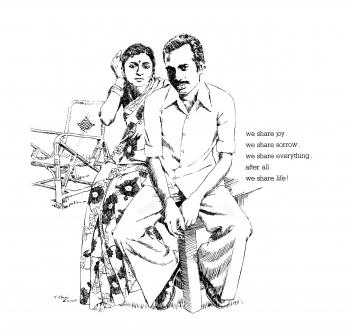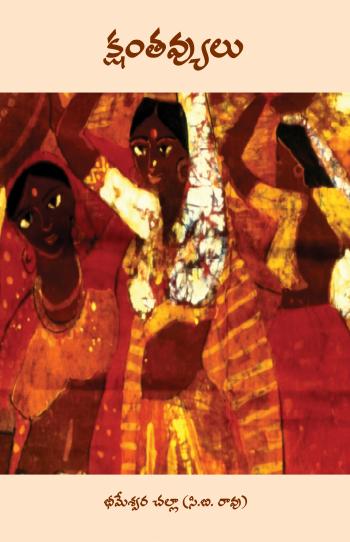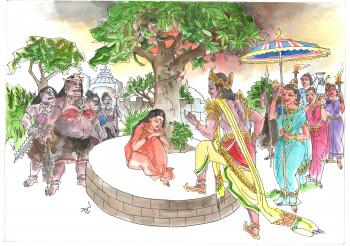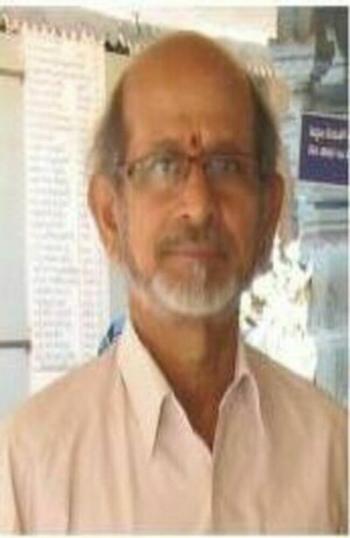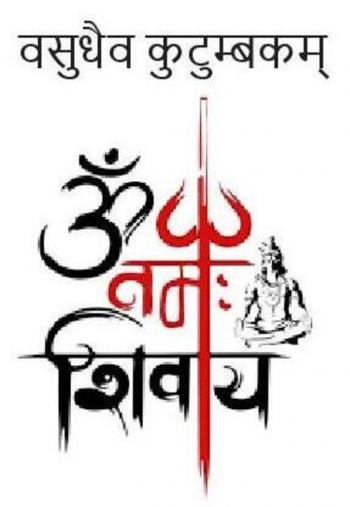Users Who Spiked
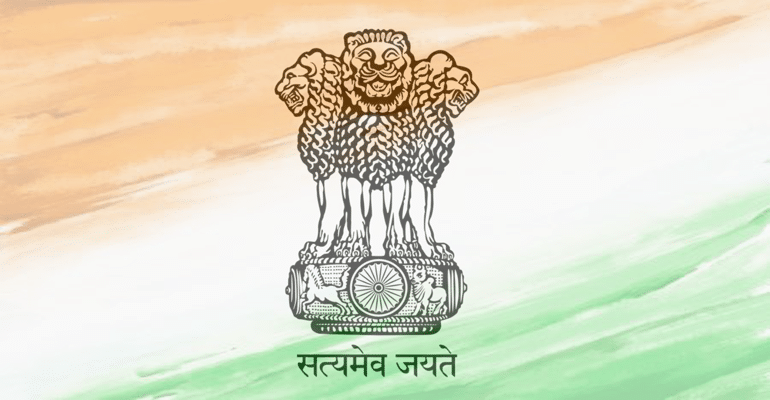
INCONGRUITIES IN INDIAN CONSTITUTION
Private Notes
Private Notes
Notes
Mohammed Ali Jinnah got what he wanted for the Musalmans of Hindustan, though in time, their religious fervour turned Pakistan into a Rogue State.
What of India, the product of an irony of a partition? While the Hindu nationalists lamented about the loss of the country's land, the Musalman intellectuals were alarmed at their reduced numbers vis-à-vis the Hindus. Even as the Golwalkars articulated the Hindu frustration in shrill voices, the Maulana Azads voiced the Muslim fears in secular tones. Whatever, as Pakistan became an Islamic nation for the Musalmans, India remained a habitat of varied interest groups, the Musalmans included! While the Indian political classes were beset with a sense of loss that partition brought in, in its wake, the Hindu intellectuals were upset by the age-old caste guilt that the reform movement occasioned in their collective consciousness.
It was in such a setting that India ventured to formulate a constitution for itself, of course, piloted by Ambedkar, the intellectual from the oppressed sections of the polity. And the end product, touted as the bulkiest of the written constitutions in the comity of nations, turned out to be an exercise in selective amnesia.
"We The People Of India, reads the preamble of the Constitution of India, having solemnly resolved to constitute India into a Sovereign Socialist Secular Democratic Republic And to secure to all its citizens:
Justice, social, economic and political;
Liberty of status, expression, belief, faith and worship;
Equality of status and of opportunity;
And to promote among all
Fraternity assuring the dignity of the individual and the unity and integrity of the Nation;
In Our Constituent Assembly this twenty-sixth day of November 1949, do Hereby Adopt, Enact and Give to Ourselves this Constitution."
None can fault the lofty ideals of this august document but for the politicization of the testament itself, i.e. by the induction of socialism into it. Strange it may seem, won't the socialistic slant negate the economic justice that it seeks to provide? After all, socialism, as per the COD, is a political and economic theory of social organization which advocates that the community as a whole should own and control the means of production, distribution and exchange. How could there be an economic justice for an individual enterprising Indian then? However, mercifully in the end, Narasimha Rao could extricate the country from the Nehruvian socialist grip to leave his legacy of a Sovereign Secular Democratic Republic of India. But that was not before socialism wrecked Indian industry and ruined its economy so much so that the country, for servicing its national debt, had to pledge its gold for all those sterling pounds.
What about the sloganeering of a secularism of India? To be secular, again going by the COD, is to be concerned with the affairs of this world; not spiritual or sacred, and in matters of education etc. not concerned with religion or religious belief. Yet the constitution of our secular democratic republic in the name of the 'Right to Freedom of Religion' dabs in all matters religious!
Foresight without Hindsight
The article of the Indian Constitution with regard to "Freedom of conscience and free profession, practice and propagation of religion" exhorts thus:
1. Subject to public order, morality and health and to the other provisions of this Part, all persons are equally entitled to freedom of conscience and the right freely to profess, practice and propagate religion.
2. Nothing in this article shall affect the operation of any existing law or prevent the State from making any law -
(a) regulating or restricting any economic, financial, political or other secular activity which may be associated with religious practice;
(b) providing for social welfare and reform or the throwing open of Hindu religious institutions of a public character to all classes and sections of Hindus."
Agreed, the right of the citizen for the profession and practice of one's religion is unexceptionable as it constitutes the birthright. But, why an ordinary Indian citizen should be concerned about the propagation of his faith for the constitution to grant it to him? Besides, where does the right of an Indian citizen for propagation of his faith leave his fellow citizen's cultural need for preservation of his own faith? After all, the right of propagation is but the right to spread one's religion, and one cannot do that without coming into conflict with another's religious faith, can he?
Hence, one citizen's right to propagate his faith vitiates the right of another to profess and practice his religion. Unwittingly thus, the Constitution of India, in granting the right for propagation of one's religion per se takes away another's implied right for the preservation of his own faith. Besides, to what avail is the right to propagate one's religion for the citizen rather than to fuel the zeal of the religious zealots for converting?
And what about the 'Fraternity assuring the dignity of the individual and the unity and integrity of the Nation' that the constitution provides for! What of the individual dignity of those Hindus who fall prey for the inducements, known to be offered by the Church, for them to embrace the Son of an alien God! Thus, is not the creed of the Church to propagate its faith that causes the poor of the land to lose their dignity is at odds with our constitutional spirit itself?
Besides, as the raison d'etre of religious propagation is conversion, wouldn't that individual right prove inimical to the unity and integrity of the Nation? However, going by the hell raised by the missionaries and the mullahs and their political cohorts at any move by the State to disfavour fraudulent conversions, the popular belief is that the right for propagation is without any constitutional strings attached to it! Only when the clamour for the future partitions of India on religious lines picks up, would a Western historian be able to spot the constitutional blind spots that gave rise to the development! Yes, it needs Western intellectuals even to see it all in the hindsight even, for India's left leaning political analysts are notoriously blind to the realities of the Indian life and times.
Be that as it may, what's the rationale of religious propagation based on which the framers of the constitution granted that to its citizens? Though Hinduism and Judaism, the world's oldest surviving religions, are content with their constituencies, it is the Christianity and Islam, the new brands in the religious marketplace that hanker for conversions, of course, having come into being through propagation. Indeed, their religious spread worldwide is owing to their creed as enshrined in their Scriptures per se. If not all, many a Christian missionary and the Musalman mullah strive to turn the world all Christian or all Muslim as the case may be. After all, that's what their scriptures ordain and their religious creed obliges them to do so.
It thus defies logic as to how our constitution makers, who went about the exercise in the immediate wake of the country's partition on religious lines, deemed it fit to endorse the propagation of one's faith, read the Christian and the Islamic, in the Hindu midst! Well, it's the illusionism of Gandhi that became the idealism of the Congress which influenced the Constituent Assembly of the just-partitioned India. And that shows, isn't it?
How strange that the Constitution exhibits a singular lack of application of mind of its framers to secure India's integrity as a constituent country for all times to come. Sadly thus, the wise-heads then, not to speak of the foresight, lacked the hindsight even. God forbid, they seemed to have unwittingly laid the seeds of a future partition of the Hindustan whose wings Jinnah had truncated. But, would this religious error ever be erased from our statute before history gets repeated!
If all this were Ambedkar's idea of a religious safety valve for the disenchanted dalits, the then harijans, then it would be a betrayal of India's cause. Of course, one can understand Ambedkar's hurt when he vowed not to die a Hindu, and, indeed, kept his word by embracing Buddhism before his death. But then, the true dalit emancipation might lie in bringing about the Hindu reformation from within and not in opting out of the faith, only to remain in the domain of the Indian social discrimination.
Now, over to the "Freedom as to attendance at religious instruction or religious worship in certain educational institutions" that the constitution stipulates.
(1) No religious instruction shall be provided in any educational institution wholly maintained out of State funds.
(2) Nothing in clause (1) shall apply to an educational institution which is administered by the State but has been established under any endowment or trust which requires that religious instruction shall be imparted in such institution.
(3) No person attending any educational institution recognized by the State or receiving aid out of State funds shall be required to take part in any religious instruction that may be imparted in such institution or to attend any religious worship that may be conducted in such institution or in any premises attached thereto unless such person or, if such person is a minor, his guardian has given his consent thereto."
The sum total of freedom of religious instruction is that the State, in true secular spirit, is expected to keep itself away from it in the physical sense. Thus in a nutshell, religious education is fine so long as the government funding is not involved! And thus the State is allowed to retain the secular pretence by keeping itself overtly out of religion. One would have expected the constitutional makers to address the content of the religious education and the need for the same to serve the needs of the communities concerned without compromising the general public order and good.
Of course, all communities need some amongst them to undergo religious education to help facilitate their lives in accordance with the tenets of their faith. That should at once be the scope as well as the limitation of the religious education, isn't it? To cater to these legitimate needs of a given religious group, the required religious education with or without the government funding forms a fundamental communal right of the members of that group.
Right, but what if in the name of freedom of religious instruction, the dogmas of such faiths, given to deride the religious beliefs of fellow citizens, are sought to be inculcated in members of that community? Won't such a move hamper the secular charter of the country besides inculcating religious bigotry in the mind-set of any given community?
Obviously, the framers of the constitution didn't delve deep enough into the vexatious subject of religious intolerance of the practicing faiths in the country. What is worse, this supposed constitutional religious goodness came in handy for the ugly politician to turn it into an exploitative mask for the Muslim Vote. It is one thing to espouse the cause of the Musalman and another to abet the whims of Islam. Sadly, for the minorities, our politicians tend to be on the right side of the wrong issues, i.e. to curry the Muslim favours to the benefit of none, save themselves.
Sham of A Secularism
Given that democracy is
1. a system of government by the whole population, usually through elected representatives and
2. a classless and tolerant form of society (Concise Oxford Dictionary) one would assume that the Indian Constitution is both equitable and egalitarian in every conceivable way. Nevertheless, Indira Gandhi thought it otherwise and so got it amended.
The Statement of Objects and Reasons appended to the Constitution (Forty-fourth Amendment) Bill, 1976 (Bill No. 91 of 1976) which was enacted as The Constitution Forty-second Amendment) Act, 1976, avers that –
"A Constitution to be living must be growing. If the impediments to the growth of the Constitution are not removed, the Constitution will suffer a virtual atrophy. The question of amending the Constitution for removing the difficulties which have arisen in achieving the objective of socio-economic revolution, which would end poverty and ignorance and disease and inequality of opportunity, has been engaging the active attention of Government and the public for some years now."
Be that as it may, without specifying "the difficulties which have arisen in achieving the objective of socio-economic revolution" in the said bill it was stated that –
"It is, therefore, proposed to amend the Constitution to spell out expressly the high ideals of socialism, secularism and the integrity of the nation, …" based on which the Constitution (Forty-fourth Amendment) Act, 1976 had sought to remodel India as "Sovereign Socialist Secular Democratic Republic".
Whatever, as neither the said bill nor the specified act defined what constitutes a secular republic; we may turn again to the COD that defines the hallowed but much abused word thus:
1. concerned with the affairs of this world; not spiritual or sacred.
2. (of education etc.) not concerned with religion or religious belief
3. a. not ecclesiastical or monastic.
b. (of clergy) not bound by a religious rule.
Hence, with regard to the above –
1. Is not the spirit of our secular republic against the State subsidy of the Haj (which the Supreme Court had to order to be given up in a phased manner) as that amounts to its showing concern with the spiritual matters of the Muslims?
2. Is not the penchant of the Muslims for the madrasa education for their children that stresses upon religious belief against the spirit of our secular republic?
3. Is not the assertion of the mullahs that they are bound by the sharia, the rule book of Islam, tantamount to the negation of the secular ethos of our remodeled republic?
While it is Okay for the Indian intellectuals that the Muslims and other minorities hold on to their religious ways, they see the Hindus' right to articulate their religious sentiments or cultural concerns in communal colors, and that's perplexing.
One may also see that the fundamental duties the amendment imposes upon the citizens, rarely, if ever, are fulfilled by our rulers themselves.
1. While it is incumbent upon us "to promote harmony and the spirit of common brotherhood amongst all the people of India transcending religious, linguistic and regional or sectional diversities; to renounce practices derogatory to the dignity of women", the electoral politics are shaped by the caste, communal and religious social divisions.
2. While it is the fundamental right of the citizen "to develop the scientific temper, humanism and the spirit of inquiry and reform" -
a) The State had failed its Hindus to rein in the caste panchayats that tend to lynch the inter-caste couples and
b) The politicians that treat the Muslims as a vote-bank had neither encouraged them to inculcate the spirit of inquiry nor provided them an environment conducive for reform.
It has been fashionable in the Indian political discourse to juxtapose secularism and communalism that is with a matching ignorance about the latter.
Communalism is "a principle of political organization based on federated communes" and given the ground realities, the parties run by Mulayam, Lalu et al are but communal, and it speaks about the paucity of Indian intellectuality that they are passed onto the public as secular parties for whatever that` means. What is worse, the only political party that espouses Hindutva (it is the fundamental duty of the Indian citizenry to value and preserve the rich heritage of our composite culture) is maligned as communal (without knowing the meaning of the word) that too in spite of the fact that the country's Apex Court had no issues with its philosophy.
No wonder that even sixty-six years after its independence, India is still groping for its political direction in an ideological darkness.
Doctrine of Ignorance
The irony of a dyed-in-the-wool Hindu nationalist and a rabid Islamic obscurantist could pin their juxtaposing positions, with equal aplomb, in the, over a hundred thousand word-long, Indian Constitution, owes itself to the vacuity of its verbiage.
Prime Minister Narendra Modi's recent exhibition of his extraordinary reverence to the Indian Constitution in the Lok Sabha, the House of the People, the Temple of Indian democracy as he puts it, like none of his predecessors did that is leaving aside Indira Gandhi's contempt for it, can be seen in the light of his quest to bestow a secular colour, however pale, to the indomitable persona of his (hoped for) exemplary legacy. But what about the irrepressible Asaduddin Owaisi's invocation of 'Allah Hu Akbar' in praise of his God the other day after he took oath as a member of the very secular house that's governed by the tome of a constitution, at least for its daunting length?
While the Hindu secular habit of left-lib brainwash would like to equivocate the Jai Sriram chants on that occasion, it calls for an intellectual urge to place the 'Allah Hu Akbar' in the context of azan, the muezzins' five-time a day call to the faithful for Islamic prayers, which reads thus:
"Allah is the Greatest,
I bear witness that there is none worthy of worship except Allah,
I bear witness that Muhammad is the Messenger of Allah,
Come to Prayer,
Come to success.
Allah is the Greatest
There is none worthy of worship except Allah."
It is thus, Hindus, Christians, Buddhists, Sikhs et al of India, and of the world, have to endure the azan, blaring from the loudspeakers of their neighborhood Mosques five times day, which, besides offending their own belief-system is bound to hurt their religious sentiments. But no one is seemingly caring, not even the evolved Christian West.
That is not all, for Allah, through the Quran, exhorts his faithful to be inimical to the non-Muslims like in the following ayats from Mohammed Marmaduke Pickthall's 'The Message of the Holy Quran':
"Let not the believers take disbelievers for their friends in preference to believers. Whoso doeth that hath no connection with Allah unless (it be) that ye but guard yourselves against them, taking (as it were) security. Allah biddeth you beware (only) of Himself. Unto Allah is the journeying."
"All they who disbelieve and deny our revelations, such are rightful owners of hell."
"And whoso seeketh as religion other than the Surrender (to Allah) it will not be accepted from him, and he will be a loser in the Hereafter."
"And fight them until persecution is no more, and religion is all for Allah. But if they cease, then Lo! Allah is Seer of what they do."
"It is not for any Prophet to have captives until he hath made slaughter in the land. Ye desire the lure of this world and Allah desireth (for you) the Hereafter, and Allah is Mighty Wise."
Wonder how these Quranic exhortations to Muslims in their mosques, madrasas and mohallas reconcile with their FUNDAMENTAL DUTIES as Indian citizens that are stipulated in the Indian Constitution, as under, is anybody's guess.
"PART IVA , 51A. It shall be the duty of every citizen of India
(e) to promote harmony and the spirit of common brotherhood amongst all the people of India transcending religious, linguistic and regional or sectional diversities; to renounce practices derogatory to the dignity of women."
Also, the Christian proselytizers as Indian citizenry fare no better in their constitutional compliance for besides branding Hindus as heathens, they label their deities as false.
Needless to say, the copy (from other constitutions) and paste (in Indian Constitution) work of the so-called framers of our constitution, comprising of Semitic-naïve Hindus and a well-informed, though embittered, dalit , as argued above, needs a pragmatic overhaul , for which the level of Hindu awareness to the Semitic outrage has to raise to self-respecting heights of Himalayan proportions.
So, is it not time for We The People of India, nearly sixty years after our fathers, or be it grandfathers had adopted the constitution, to factor the new realities into a more equitable document? After all, isn't the level playing field the theme song of the world today? And the Hindu emotional grievance is that they are denied just that in the religious plane in the country that their forbearers made their own before all else'.
More about India in the author's free ebook Puppets of Faith: Theory of Communal Strife https://g.co/kgs/c38NGw




















